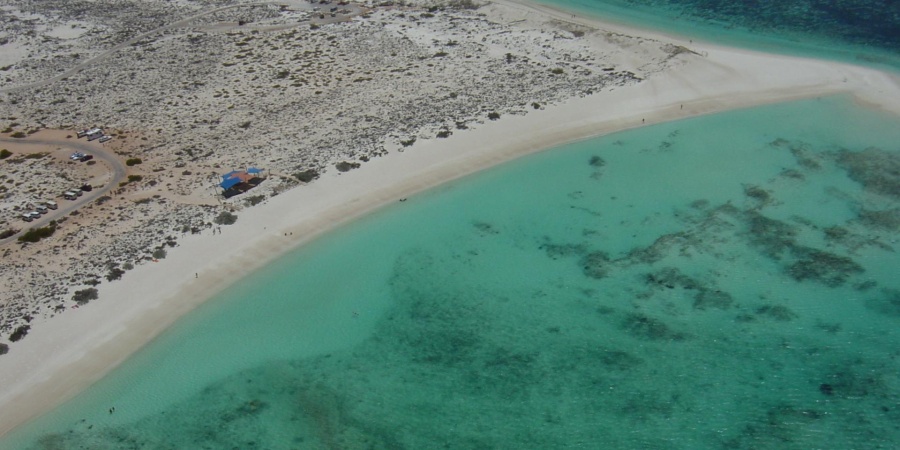
Ningaloo Marine Park - Turquoise Bay
- Ningaloo Coast generates $110 million in value added annually to the WA economy
- Study to inform future management planning for the region
The World Heritage listed Ningaloo Coast generated more than 1,000 jobs and contributed an additional $110 million to the Western Australian economy last year, a study has revealed.
The Deloitte Access Economics study, commissioned by the Department of Biodiversity, Conservation and Attractions (DBCA), indicates tourism made up 90 per cent of economic contribution to the area, followed by commercial fishing, recreational activities, scientific research and reef management.
In the 2018-19 financial year an estimated 218,000 people visited the Ningaloo Coast and spent about 1.3 million nights, while there were about 61,000 daytrip visitors. One quarter of visitors were international, and each holidaymaker spent an average of $137 per day.
Ningaloo is estimated to have supported more than 1,000 full time jobs in WA in 2018-19, with employment concentrated in tourism-related industries.
The study forms part of the Resilient Reefs Initiative, delivered by DBCA on the Ningaloo Coast and initiated by the Great Barrier Reef Foundation in collaboration with UNESCO World Heritage Marine Programme, The Nature Conservancy's Reef Resilience Network, Columbia University's Center for Resilient Cities and Landscapes, Resilient Cities Catalyst and AECOM. The program is enabled by the BHP Foundation.
The report is available on DBCA's Resilient Reefs Ningaloo web page.
Comments attributed to Environment Minister Stephen Dawson:
"The COVID-19 pandemic has presented significant challenges for the communities surrounding Ningaloo Reef such as Coral Bay and Exmouth, whose economic mainstay is tourism.
"However, this study indicates that under normal conditions, the Ningaloo Coast generates significant economic activity and highlights the region as a natural, cultural and tourism asset to Western Australia.
"As things slowly return to normal, I encourage Western Australians to explore this spectacular region, which is famous for its fringing coral reef, abundant marine life, and unique experiences such as swimming with humpback whales and whale sharks.
"Having a clear understanding of the way the reef drives the local economy will help us make decisions and guide management for the area, and work with the community, scientists, industry and traditional owners to make it more resilient to any future challenges."